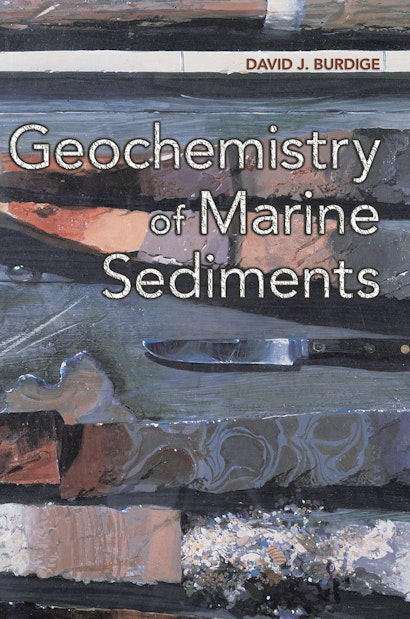The processes occurring in surface marine sediments have a profound effect on the local and global cycling of many elements. This graduate text presents the fundamentals of marine sediment geochemistry by examining the complex chemical, biological, and physical processes that contribute to the conversion of these sediments to rock, a process known as early diagenesis. Research over the past three decades has uncovered the fact that the oxidation of organic matter deposited in sediment acts as a causative agent for many early diagenetic changes. Summarizing and discussing these findings and providing a much-needed update to Robert Berner’s Early Diagenesis: A Theoretical Approach, David J. Burdige describes the ways to quantify geochemical processes in marine sediment. By doing so, he offers a deeper understanding of the cycling of elements such as carbon, nitrogen, and phosphorus, along with important metals such as iron and manganese.
No other book presents such an in-depth look at marine sediment geochemistry. Including the most up-to-date research, a complete survey of the subject, explanatory text, and the most recent mathematical formulations that have contributed to our greater understanding of early diagenesis, Geochemistry of Marine Sediments will interest graduate students of geology, geochemistry, and oceanography, as well as the broader community of earth scientists. It is poised to become the standard text on the subject for years to come.
David J. Burdige is Professor of Chemical Oceanography at Old Dominion University and an associate editor of the journals Marine Chemistry and Geochemica et Cosmochimica Acta.
"This excellent and comprehensive volume on the geochemistry of marine sediments synthesizes a large body of recent research as well as the author's own extensive work in the field since 1983. The breadth and depth of the subject matter is supported by approximately 1,000 literature references on 71 pages, and the text is divided into 18 chapters of varying length."—Abraham Lerman, Journal of Geology
"Despite the complexity of the medium and the processes occurring in it, Burdige has written a comprehensive, well-organized, thoroughly referenced, and highly readable text. Marine sediments are important as habitats for life, in geochemical cycling elements, and as an essential record of the past. These themes are seamlessly integrated in the book, which should find a place on the shelves of anyone working in these areas."—Carol Arnosti, Limnology and Oceanography Bulletin
"Burdige offers a thorough and complete discussion of geochemical processes governing sedimentary composition and diagenesis, according to the current understanding. . . . The presentation is comprehensive and clear."—Choice
"In this extraordinary tour de force, Burdige captures the complexity and growing interdisciplinary nature of the field of marine geochemistry. The book is sure to become a standard text for years to come."—Thomas S. Bianchi, Eos
"This is undoubtedly a major contribution to the field. David Burdige's scholarship is cutting edge."—Bernard P. Boudreau, Dalhousie University
"Burdige has written a wonderfully exhaustive review spanning all aspects of marine sedimentary geochemistry. Generous background welcomes the newcomer, while ample depth and breadth stimulate the savvy expert. The discussions are built from the latest work in biogeochemistry and microbial ecology. And in the tradition of Robert Berner's classic treatment of early diagenesis, Burdige handles reaction pathways and transport processes rigorously and quantitatively. This nicely written, well-illustrated survey suits both the reference shelf and the classroom."—Timothy W. Lyons, University of California, Riverside
"This book fills a gaping hole in our field. While certain to be used by specialists, it also provides background and ancillary information so as to reach allied fields. Burdige has done a remarkable job in providing the right balance of background theory, real-world implementation, and examples from the literature."—Rick Murray, Boston University
"David Burdige's book reviews and develops the ideas that emerged in the field of geochemistry over the last twenty-five years. It is a significant contribution. The scholarship is clearly sound, with excellent and comprehensive references to the latest work. I have no doubt it will be useful to any students who wish to learn the subject."—Michael Krom, Leeds University Earth and Biosphere Institute

